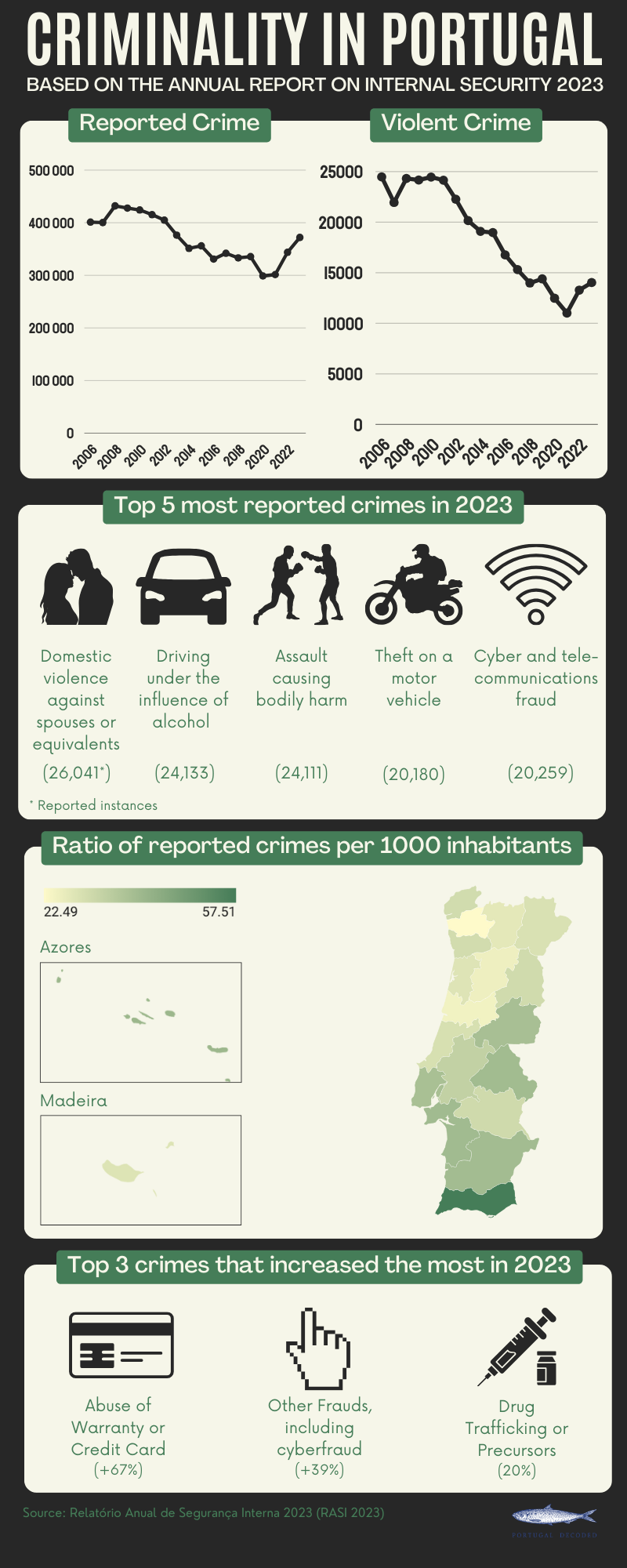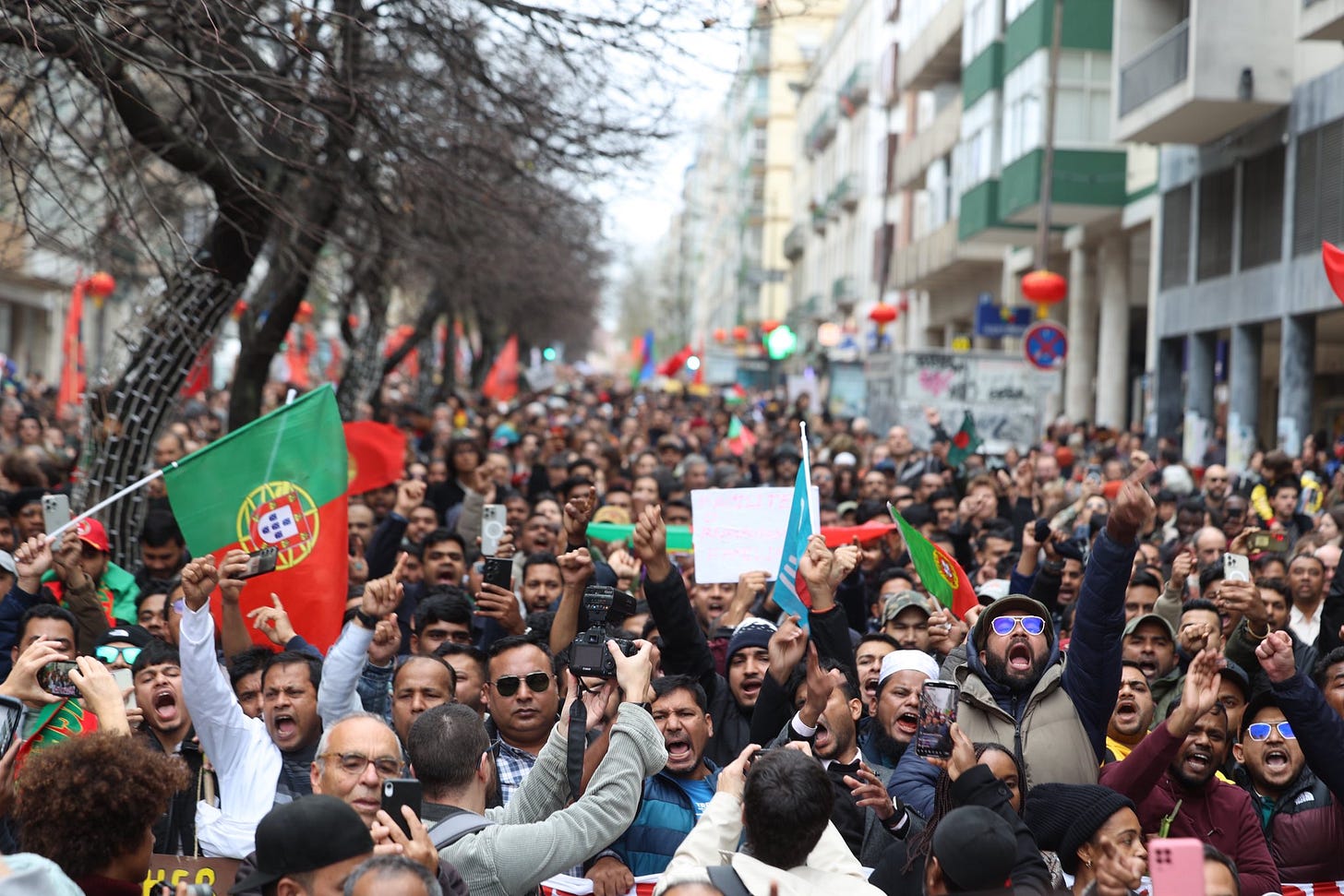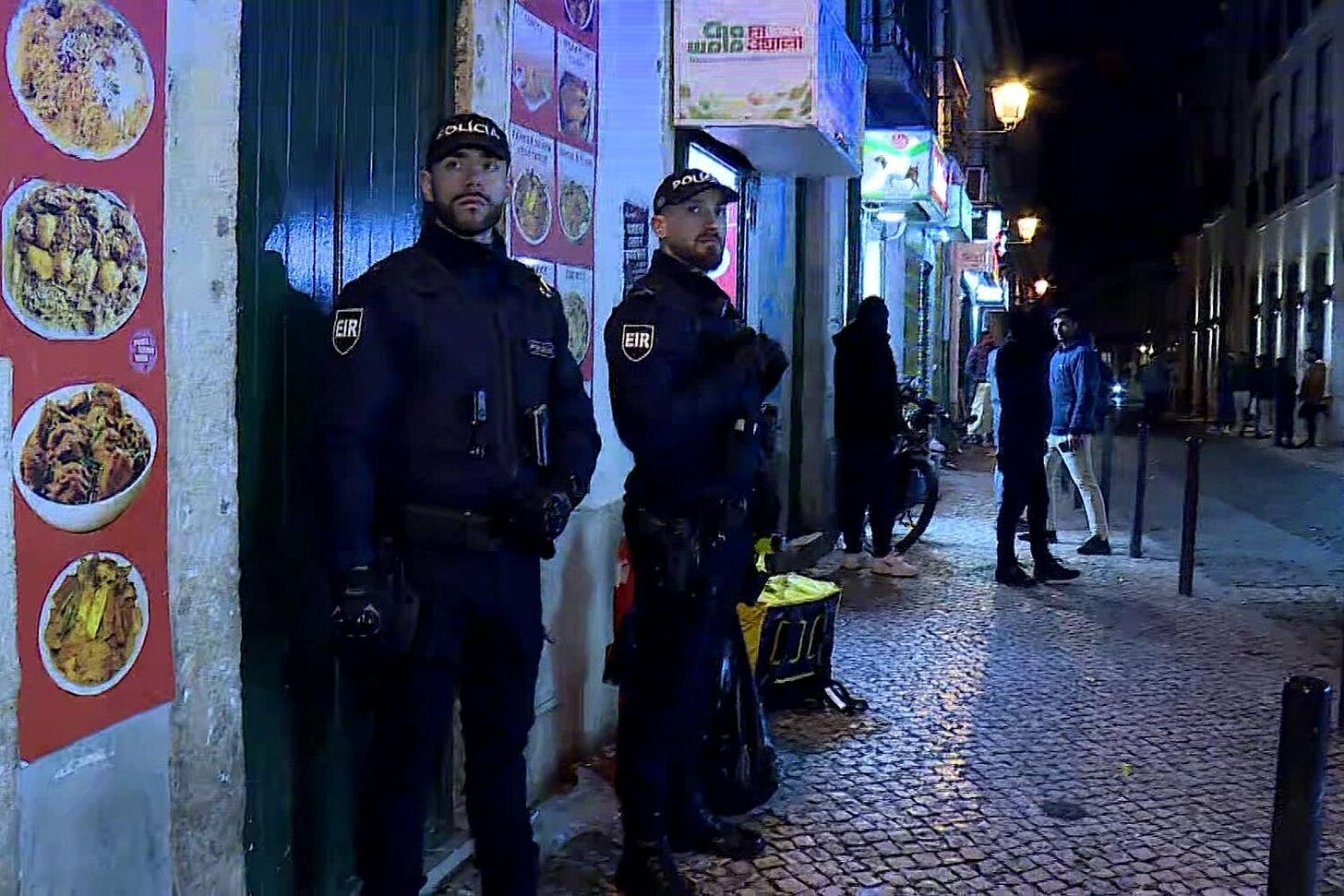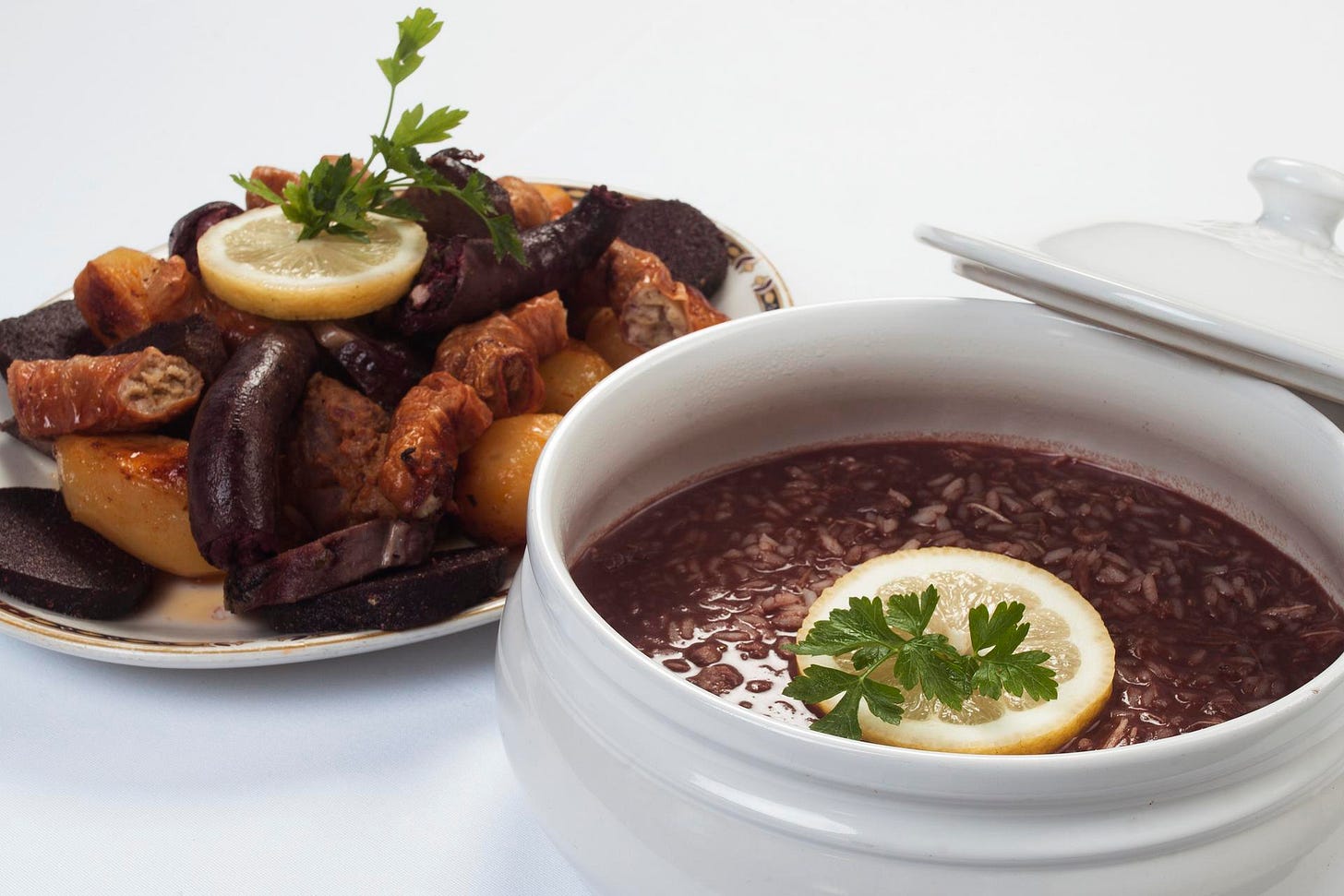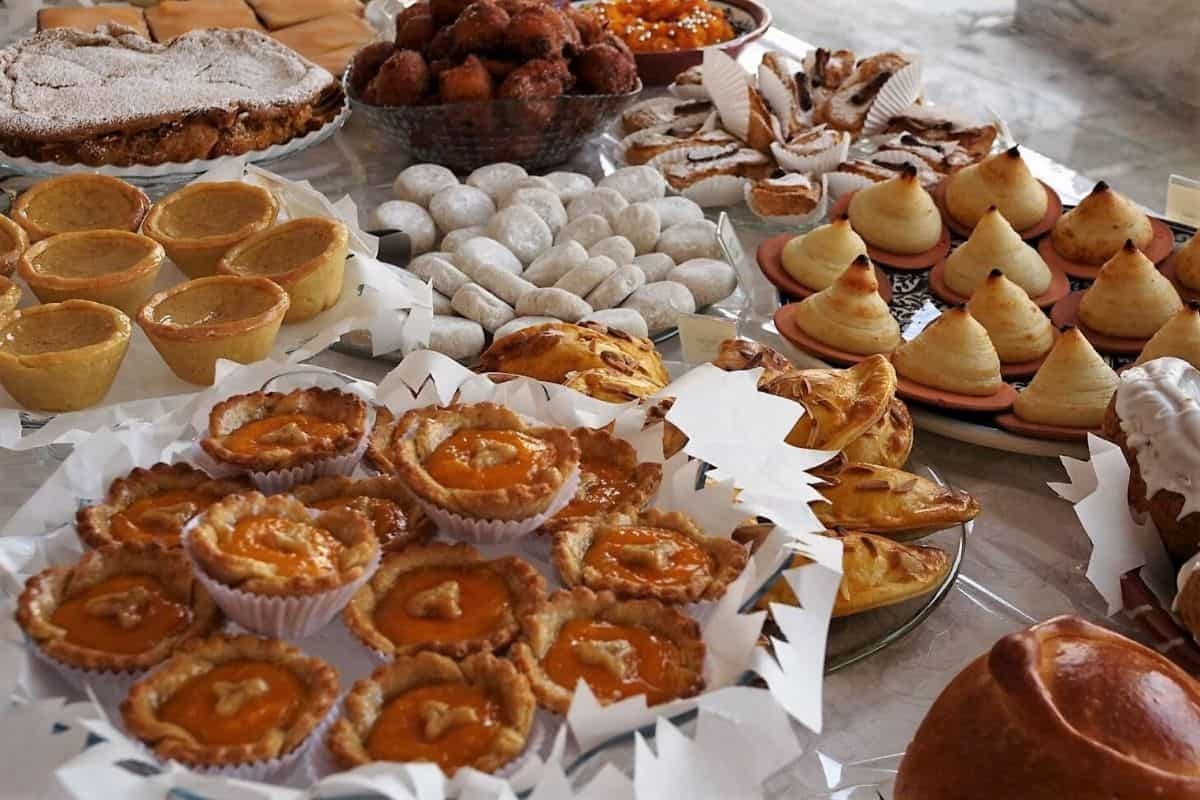Friday Briefing: Is crime on the rise?
Good morning and welcome to PORTUGAL DECODED. Crime is back—at least on the political agenda. Recent police operations have sparked debates, but is insecurity merely a perception or a genuine concern?
TALK OF THE TOWN

Hey there! Do you enjoy reading PORTUGAL DECODED? Please consider donating to keep it free and independent – your generosity means everything!
POLITICS
A new poll has confirmed Henrique Gouveia e Melo as the favourite for the 2026 Presidential elections. Meanwhile, Mário Centeno, the current Governor of the Bank of Portugal, ruled out a presidential candidacy (More).
The Socialist Party has picked Alexandra Leitão, the former Minister for Modernization of the State and Public Administration and the party’s current parliamentary leader, as its candidate for Lisbon’s Mayor (More).
SOCIETY
The PM grew visibly irritated in Parliament over the restrictions on access to the National Health Service (SNS) for non-resident foreigners. Data revealed this week showed that, in 2023, the SNS had only €5 million in unpaid patient bills (More).
“What do we say to Alcinda Cruz’s children?” With this question, Justice Minister Rita Júdice opened the judicial year, referencing Portugal’s first femicide of 2025, which occurred last Thursday in Barreiro (More).
ECONOMICS
The Portuguese movement Porta a Porta has urged the national government to follow Spain’s suit and introduce a 100% tax on property purchases by non-European Union foreign residents to address the housing crisis (More).
With municipal elections set to take place later this year, 200 municipalities across Portugal have decided to partially or fully return their personal income tax revenue to taxpayers, totalling approximately €558 million (More).
CULTURE AND SPORTS
A consortium led by renowned architect Manuel Aires Mateus, recipient of the 2017 Pessoa Prize, has won the competition for the redevelopment of the National Stadium in Jamor, Oeiras (More).
Braga will launch its year as the Portuguese Capital of Culture on January 25, with a series of events, including concerts by renowned artists Mariza, and Dino D’Santiago and a spectacular drone show over the city (More).
DECODER
How did criminality become the main topic in Portuguese politics?
The answer depends on who you ask and their political view - which already goes a long way towards explaining the matter. A supporter of the far-right Chega party might argue that the 8% increase in reported crime, as outlined in the Annual Report of Internal Security 2023, is a wake-up call for tougher measures. The ruling centre-right AD coalition emphasizes the need to restore Portugal’s reputation as one of the safest countries in the world—a reputation that was severely shaken by the unrest in Lisbon in October 2024. Meanwhile, left-wing voices accuse the Government of exploiting fear to poach voters from Chega, which prevented the AD coalition from securing a stable majority in Parliament in the March general elections. The catalyst for this debate was a controversial police operation in Lisbon’s Martim Moniz on December 19, during which dozens of people—mostly South Asian migrants—were lined up against a wall.
What happened next?
The operation provoked immediate backlash from left-wing parties and immigrant associations. They published an open letter to Prime Minister Montenegro, submitted a formal complaint to the Ombudsman questioning the legitimacy and proportionality of the operation, and organized a march titled “Don’t Push Us Against the Wall” to protest racism and xenophobia. The march, held on Saturday in downtown Lisbon, drew roughly 50,000 participants, who chanted slogans like “Fascism Never Again” and “April 25th Always.” Nearby, in Praça da Figueira, Chega held a much smaller vigil in support of the police, attended by only a few hundred people. On the same day, PM Montenegro positioned himself as a moderate voice, attempting to distance his Government from the “extremists” on both sides.
Was this the end of it?
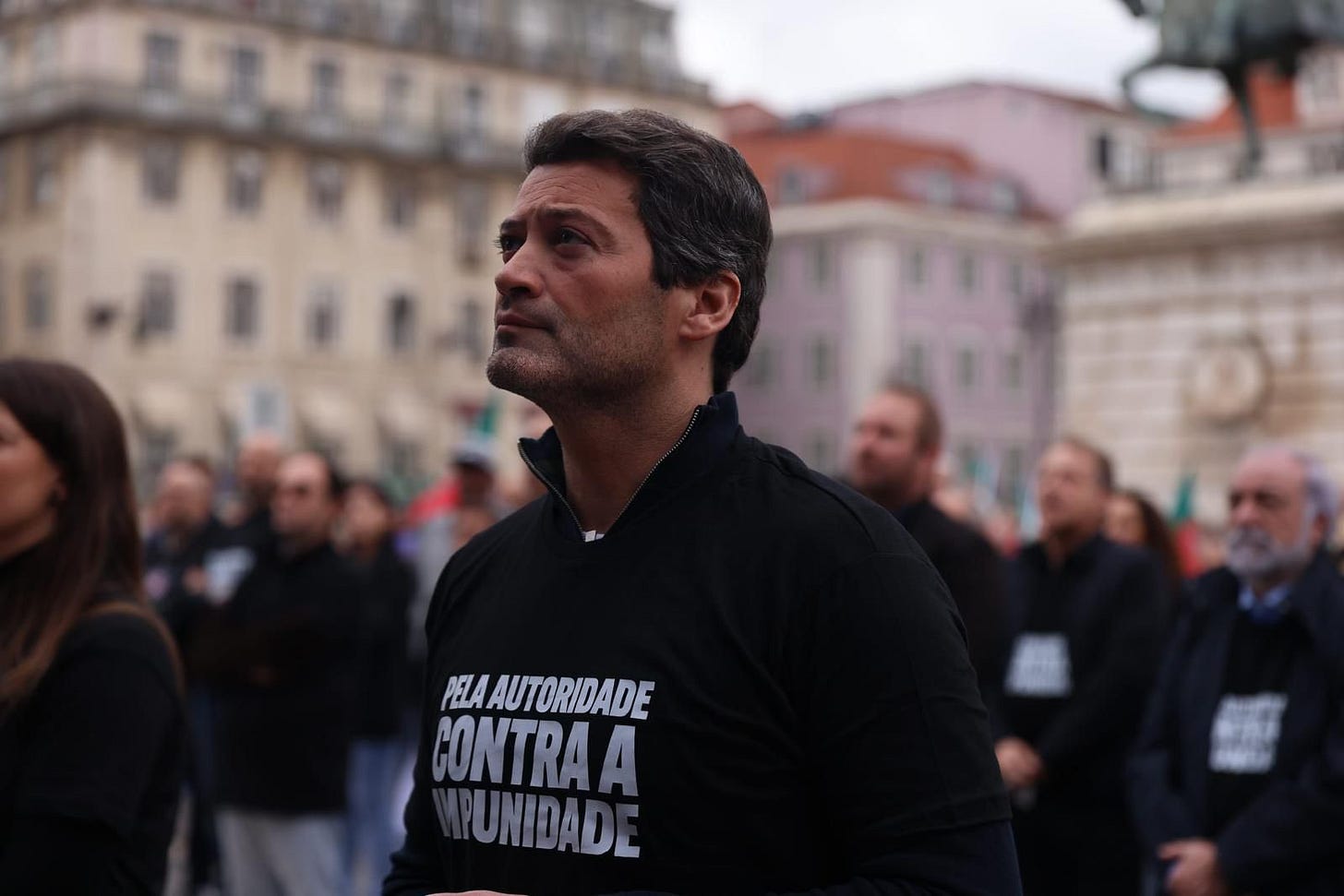
Sadly, no. The next day, a violent brawl erupted between rival Bangladeshi groups in Largo do Intendente, also in the Martim Moniz area. Seven people were injured, three of whom required hospital treatment. According to Bangladeshi community leader Rana Taslim Uddin, the clash stemmed from political disagreements, while the police reported no arrests. Chega leader André Ventura seized on the incident, claiming that the shocking images of the brawl revealed “the absurdity to which the left stooped” during the “Don’t Push Us Against the Wall” protest. He remarked: “We had a conflict between immigrants that ended in a fight with sticks, blood spilled in the streets, attacks on journalists, and attacks on bystanders. And who did they call? (...) They called the police they criticized, the police they said had overreacted, the police they accused of using excessive force.” This placed the Government in a more defensive position once again.
How then?
First, Lisbon Mayor, Carlos Moedas (from the same party as PM Montenegro), said the city faced a problem of insecurity and expressed willingness to install a video surveillance system in Martim Moniz. On Wednesday, Home Affairs Minister, Margarida Blasco, argued that that “it’s not the police who pose a threat to public order, on the contrary, the police are often the victims”. On Thursday, PM Montenegro addressed Parliament, expressing discomfort with the images of police frisking migrants but asserting: “It had to be this way.” He reiterated that his Government’s approach is rooted in facts, pointing out that while Portugal remains a relatively safe country, violent crime rose in 2024. Socialist leader Pedro Nuno Santos, however, sidestepped the security issue, instead focusing on the economy—a topic likely to resonate more with his base. But the question remains: can the public’s attention shift away from security?
TIPS OF THE WEEK
Lisbon
Marta Pereira da Costa - Sem Palavras
Considered to be the first and only woman to professionally master the traditional Portuguese guitar, Marta Pereira da Costa has graced stages around the world, including NPR’s Tiny Desk. In this show at 9pm on January 19 at the Tivoli BBVA Theatre, which will also feature ballet moments, she will present her second solo album, Sem Palavras, released in 2024 as an independent edition. The album highlights the meeting of the Portuguese guitar with the piano, featuring the multi-award-winning and Latin Grammy winner Iván Melon Lewis. Recorded in Madrid, at Estúdio Cezanne Producciones, and entirely performed and produced by the two musicians, the setlist includes songs by the guitarist, such as the first single, Dia de Feira, and blends classics of fado and jazz. Tickets available here.
Porto
John Williams and the Magic of Disney
On a magical and exciting night at 9.30pm on January 20, the Hollywood Symphony Orchestra embarks on a musical journey that merges two iconic worlds: the musical genius of John Williams and the unparalleled magic of Disney. This classic concert promises to take the audience to a dream world where music comes to life and hearts are filled with nostalgia and joy. At the Coliseu do Porto, the Hollywood Symphony Orchestra will offer a masterful performance of John Williams’ most celebrated compositions: from the epic themes of Star Wars to the thrilling melodies of E.T. The Extra-Terrestrial and Jurassic Park, the auditorium will immerse itself in the profound musical richness of the legendary composer. Tickets available here.
Ponte de Lima
Sarrabulho Rice Gastronomic Weekend
Sarrabulho Rice, a specialty from Minho region, might be the most polarizing dish in Portuguese cuisine—you either love it or hate it. This hearty dish is a heavily seasoned blend of shredded pork cooked with cinnamon, clove, cumin, garlic, onion, and sometimes bay leaves. What sets it apart is the addition of fresh pig’s blood, which thickens the sauce and deepens the flavor. Sarrabulho Rice is often enjoyed as a standalone dish or served alongside other meats like roasted pork or rojões (fried pork chunks). If you’re intrigued and eager to try it, head to Ponte de Lima from January 24–26 for the Sarrabulho Rice Gastronomic Weekend—the first event since the EU named it a Traditional Specialty Guaranteed. During the weekend, participating hotels will offer a 10% discount on accommodation, and restaurants will include a complimentary custard with each portion of Sarrabulho Rice served on Saturday and Sunday. Full program here.
Vila Viçosa
Conventual Sweets Fair
Conventual sweets, some of which date back to the 15th century, are an important part of Portugal’s culinary heritage. Made primarily with egg yolks, abundant sugar, and minimal flour, each of these sweets has a story to tell about the nuns and monks that invented (and ate them!). On January 24-26, the Cloister of the former Augustine Convent in Vila Viçosa hosts the 2nd Conventual Sweets Fair. During these three days, it will be possible to discover a special variety of convent sweets prepared by local and national confectionery masters. The event, organised by the town council, will include music, a sweets competition and activities for children. Entry is free.
Hey there! Do you enjoy reading PORTUGAL DECODED? Please consider donating to keep it free and independent – your generosity means everything!



